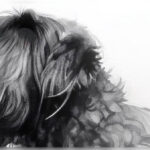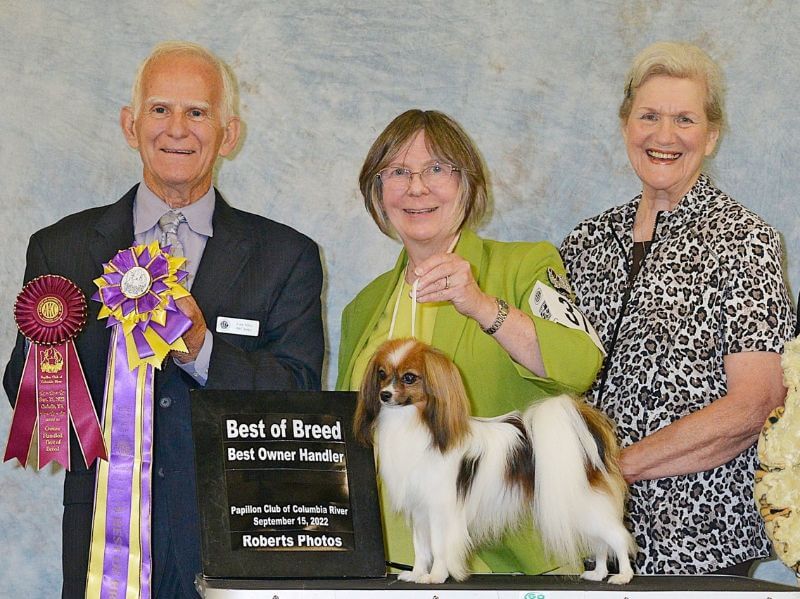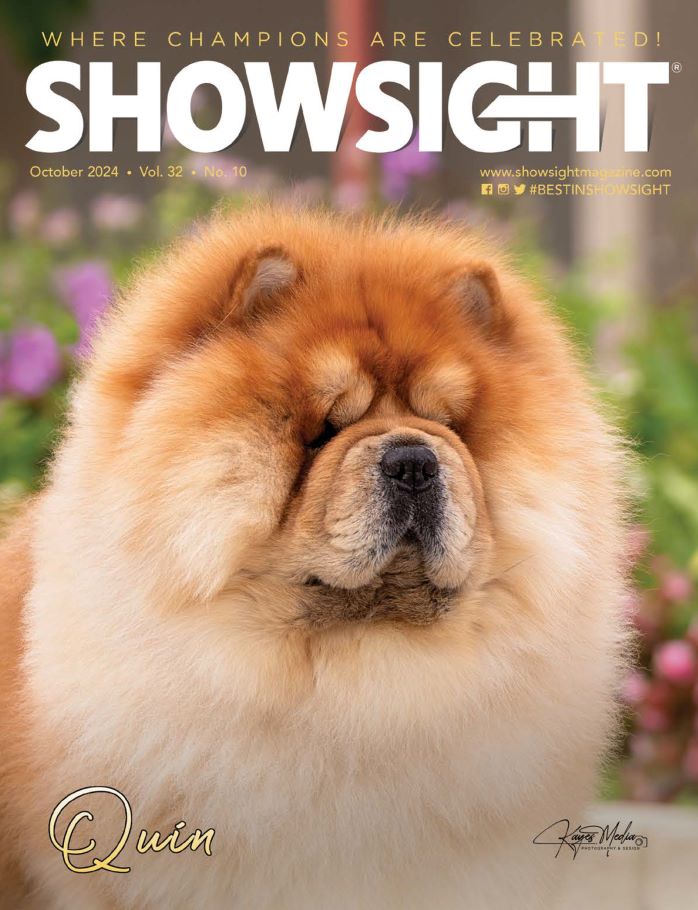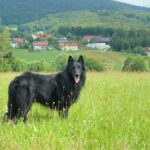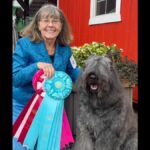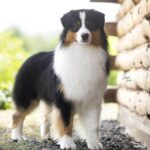Interview with Marion Ford, Breeder of Akai Papillons
Where do I live? How many years in dogs? How many years as a breeder?
Marion Ford: I currently live in Southeast Washington State. I’ve been showing dogs since 1984, starting in Akitas, and I have been breeding Papillons since 1998.
What is my kennel name? How many dogs do I currently keep?
Marion Ford: My kennel name is Akai. Akai is red or crimson in Japanese. Currently, I have eight dogs living with me, five of whom are Phalenes and three are Papillons.
Which show dogs from the past have been my noteworthy winners?
Marion Ford: I’ve had a few dogs that have done well. CH Akai’s No Jacket Required was No. 3 in the country in 2009. I followed up with three BISS Phalenes: GCHB Akai’s Diamond In A Rhinestone World, who ended up No. 25 Papillon in 2018 and Reserve Challenge Certificate at Crufts in 2018; her litter sister, GCH Akai’s A Diamond Is Forever, who was owned by Adrienne Dente and was shown to her Specialty win by Susan Bleckley; and GCH LaRen Kalista Akai’s Dark Sword, bred by Janis McLaren and Kay Crete, who won the Papillon Club of Columbia River’s 2022 Regional Specialty under Gary Stiles and who is out of GCH Akai’s Dresden Green Diamond (Griffey).
Which have been my most influential sires and dams?
Marion Ford: My most influential Phalene sire is GCH Akai’s Dresden Green Diamond. He became a Sire of Merit this past year with very limited breeding. I took him to Puerto Rico to achieve his FCI title and his Latin American and Puerto Rican Championships. He was 2017’s Best Stud Dog at the National Specialty under Ed Biven! He is also the father of Multi. CH Andali Animato Mont Blanc, who is now living in Denmark producing wonderful dogs for his owner.
My most influential Phalene dam is Griffey’s litter sister, Akai’s Hope Diamond. She wasn’t beautiful and she never finished her title, but she was a good mother and produced well. My Papillon girl, Akai’s Trip To Paris, is the mother of a BIS dog. Her daughters live with me now, and I’m planning their breedings.
Can I talk a bit about my facilities? Where are my puppies whelped? How are they raised?
Marion Ford: This makes me smile a bit. My dogs are all housepets. Toy Dogs, in particular, were bred to be companions. They thrive on being near you at all times. My husband and I are the only humans in the house, but the couch is a very large leather sectional so that all the dogs can spread out with us. They sleep in their crates at night. We tried letting them share the bed, but when you have to wake up to move so that you don’t squish a dog, you lose a lot of sleep!
I usually whelp the litters in my master bathroom. It’s big enough for me to sleep in. It’s easier to regulate the temperature in there without cooking the rest of the house, and after the babies are born, I can hear if anybody is crying. At three weeks of age, they move into the dining room. They can hear everyday noises, but the other dogs can’t get in there to bother them.
At about six weeks, or when they start climbing out the ex-pen, they move into the entry. Again, they can hear and see everything without getting bothered by the other dogs. I will play household noises as soon as their ears open at about three weeks old. Legacy makes a great one: children screaming and crying, thunder, power tools, ambulances, fireworks, etc. I also adhere to early neurological stimulation. The military call it “bio sensor program.” The public knows it as “super puppy” or “super dog.”
What is my “process” for selecting Show Puppies? Performance Puppies?
Marion Ford: I watch all my puppies daily from the time they start toddling around. I observe how they handle new situations and how they interact with each other, their mom, and us humans. Since I come from Working Dogs, structure is very high on my list for both Performance and Conformation Dogs. A Performance Dog has to be built right to handle the stresses their bodies deal with in doing the chosen sport. A Conformation Dog has to be built right to really shine in the ring. A good judge can spot physical issues very quickly regardless of the amount of coat a dog has.
How important are Breed Specialties to me? How important are Group Shows?
Marion Ford: Breed Specialties are very important to me. The judges are chosen by the club membership and they tend to be breed specialists. They often are breeders themselves. The Specialties are the best place to show the quality of your dogs to other breeders and where one can see the best of the breeders who are not living near you. It’s a great place to share ideas, breeding practices, and health issues. I like Group Shows, but we don’t have many in my region. I can only think of two that are within driving distance.
What are my priorities when it comes to breeding? What are the drawbacks?
Marion Ford: My priorities are all about looking for the perfect mate for my girl. I try to always double up on the good points and offset the bad points as best as possible. I tend to avoid using “soft” temperaments. In the end, all show dogs are pets, and I want to make sure that my retired dogs are great representatives of the breed. I think the drawback to any breeding these days is the cost both in time and money. I don’t know anyone who can have a large kennel as in the past. We have to cooperate with other breeders and share our knowledge and bloodlines. Sometimes, that perfect mate is across the country or unavailable to you.
How would I define “conditioning” as it relates to my breed? How important is coat care?
Marion Ford: I believe that Conformation is the dog world’s version of a beauty pageant. Coat care is very important to us, especially the much-treasured ear fringe. The red-colored dogs have very fine hair that breaks off easily. It’s so very hard to let the youngsters play and somehow keep them from chewing on each other’s ears. Physical conditioning should be easy for a Papillon. Let them play, give them walks, and try to challenge them mentally. Mine love “going to school,” which is Nosework in my case. I’m a lazy trainer!
Are there any health-related concerns in my breed? Any special nutritional needs?
Marion Ford: Papillons are generally a healthy breed. We were fortunate to have had breeders in the past who would remove unhealthy dogs from the breeding pool and would spay and place any bitches that could not free-whelp or would not take care of the puppies. Our health problems are genetic. Subluxating patellas, which is a poly-genetic trait and the bane of the Toy Dogs, and PRA 1 and 2. Through genetic testing and research, we found the marker for PRA1, which is the early onset form of the disease. Researchers are still looking for the marker for the late onset form.
There isn’t anything special you need to do for your Papillon nutritionally speaking. A high-quality dog food is fine. Many breeders feed raw. Some will buy commercially prepared food, and some have done a lot of research and make their own.
Do I think my breed is supported by a sufficient number of preservation breeders?
Marion Ford: This is a two-part question in the case of Papillons. Yes, I think, world-wide, we have plenty of preservation breeders of Papillons. I can’t say the same for the Phalene. For the last 20 years, there have only been about a dozen preservation breeders of the Phalene variety here in North America. The Europeans have many more Phalene breeders. As you can imagine, the European type of Phalene is a bit different than the American type.
Is my breed well suited to be a family dog? Who are the best candidates to own my breed?
Marion Ford: Papillon are well suited to a family with older children. Although Papillons are healthy, they are still small and fine-boned. Broken legs are not unheard of. I never place a Papillon in a house with very young children or where I haven’t met the kids. My best candidates understand that Papillons are still dogs, so they aren’t coddling them. They are dogs that can behave like little tyrants and must not be allowed to act like that. I like an owner who realizes they have a very intelligent animal that they are taking into their homes and lives for many years. It’s not unheard of for a Papillon to live to be 16 to 18 years old. I believe the oldest on record died at the age of 28. He was owned by Diane Mooney of Ireland.
What is the biggest misconception about my breed? What is my breed’s best-kept secret?
Marion Ford: Pet buyers always want a girl because they think the boys will mark. The girls mark too, you just don’t notice it because you think they are sitting down. The puddles are quite small and easy to miss in the carpeting. Then the puppy will continue to pee because they can smell it. If you are consistent with your housetraining, you shouldn’t have a problem with either sex. Papillons are pretty popular in the Conformation ring and the Performance ring. I think the general public doesn’t understand just how smart these dogs are.
If I could share a comment or two with judges of my breed, what would I like to say to them?
Marion Ford: We are a jacketed breed. A dog should not have body coat dripping to the ground like a Maltese. Ear fringe is nice, but it can’t help a dog walk to the dinner dish. A Phalene’s ears WILL rotate on the move, just like a Papillon’s do.
Do I have any words of wisdom to pass along to newer breeders?
Marion Ford: Our breed is a joy to behold and live with. Be patient, talk to a lot of breeders. Show up at the National Specialties. You don’t have to show a dog. See what the top breeders are producing. Go to the genetics seminars. Go to as many dog seminars as you can. Make sure you find a mentor who will tell you what you are doing—right and wrong. Don’t breed to a dog because he’s near you or because you and his owner are friends, or worst of all, because you can use him for free or in exchange for a puppy.
For a bit of fun, what’s the most amusing thing I’ve ever experienced with a Toy Dog?
Marion Ford: My first Papillon, “Rosie,” was the canine equivalent of a nuclear physicist. One evening, I noticed she was trying to eat something on the driveway. After checking, I saw it was a mouse! She wouldn’t let me near her. I went inside, got a huge chunk of Rollover, and figured I’d trade her. She looked at me, looked at the food, flipped the mouse around, and swallowed it whole—head first—and then grabbed the rollover out of my hand and ran like h*ll to finish the food, away from me!
